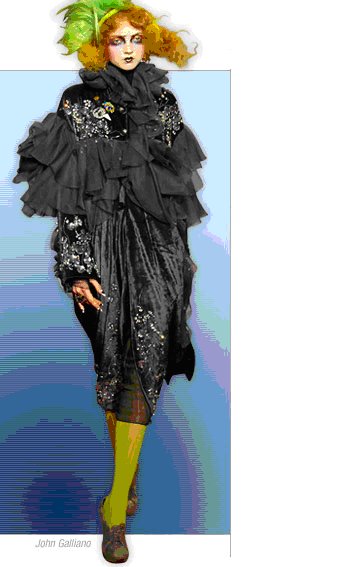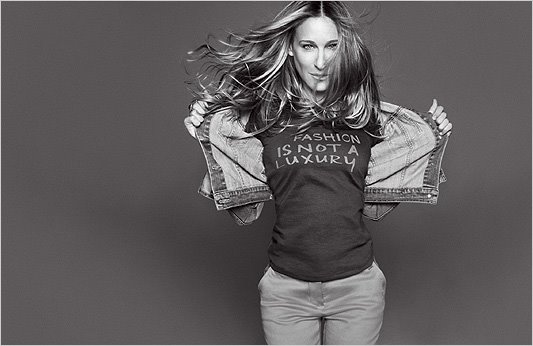
Thursday, August 20, 2009
Twiggy in this Decade

Friday, August 14, 2009
DO YOU UNDERSTAND VINTAGE SHOPPING?
So what exactly is vintage? Well it’s certainly not an item of clothing made in the last 15 years, despite what all those 80’s and 90’s groupies might think. But it’s still a fairly broad category, covering everything under 100 years old. Years ago vintage clothing was either old clothing or simply second hand. It was looked down upon by the fashion conscious folks.. Vintage is now so popular that it has become a mini-industry in itself. There are numerous vintage fashion boutiques around the country and even in Europe and Asia. The top end designers are resurrecting earlier creations of their design salons.
Now you can go to regular vintage fashion events like Manhattan Vintage Show in New York or Vintage Fashion Expo in San Francisco. These types of events that are worth writing on your calendar so you will remember to go to them. These shows have so much vintage available and the shows are so big that it is easy to become overwhelmed and you end up buying nothing.
The real advantage of buying vintage is not the price, or even the much vaunted uniqueness of the pieces, but the cut and the fabrics. Vintage clothing was built to last, and limited budgets plus expensive manufacturing processes meant that good quality clothes were treasured. Vintage clothing is cut to fit so forget skinny actresses that you see in Vogue and Elle. The ideal vintage buyer is a curvier woman. Remember that vintage sizes may be smaller than today’s sizing guidelines that manufacturer follow. Clothing from earlier eras does fit a woman that has hips, bums and busts. You just need to try the clothes on.
To stay a step ahead of the crowd, shop outside of the season. Right now is the best time to hunt for some winter clothing. A good vintage fur coat is great for the winter in New York and works equally well if you are lucky to travel in Europe. A brand new fur coat is extremely politically incorrect. A vintage fur is a bit more ethical. But, if your conscience demands something a more ethical but you still want the fur look, you can try a vintage faux fur.
Now is the time that you should look for vintage cocktail dresses that can be shortened to bring them up to date for the holidays. 1940’s fashion is great for a slightly gentler take on the big shoulder that has dominated the 2009 Designer catwalks. The more unpopular something has been in recent years, the easier it is to find a vintage steal. Velvet is about to have a massive comeback having appeared on the Dolce & Gabbana, Prada, Lanvin and Chloe catwalks and is great for injecting a bit of feel good glamour to your winter wardrobe. Look out for rich, dark colors and a fine pile to the fabric.
So where do you find the best vintage for the dollar?
Serious devotees buy at auctions and estate sales. This will are more likely to find a real treasure but these tend to take place during working office hours making them fairly inaccessible to most shoppers. The next best places are the websites of the members of the www.VintageFashionGuild.
Other things to remember when shopping vintage stores:
Don’t worry too much if there are buttons missing, these can always be replaced by your drycleaner, tailor or yourself if you are handy with a needle and thread.
Rips and tears are harder to deal with, especially if they’re not on the seam or the fabric is very delicate, so check carefully before you buy.
Avoid anything with stains under the arms – this cannot be fixed and is very hard to cover up.
Check carefully for moth holes as there is nothing worse than bringing home a lovely dress that ends up not being wearable.
Don’t be afraid to bargain, it doesn’t hurt to ask and vintage sellers are usually in the business because they truly love the clothes, so if they think it’s going to a good home they may be willing to chop the price.
Other things to remember when shopping vintage on web sites:
Read the descriptions carefully. Descriptions will tell you if there are any rips, tears or stains.
Be sure that you want to buy the garment before ordering.
If you have to return the garment make sure that you can return the garment in the same condition as you received it. Also email the seller within 24 hours of receipts if you need to return it.
Don’t be afraid to wear your vintage buy! There’s no point in buying a gorgeous embroidered 50’s ball gown if it’s just going to sit at the back of your wardrobe. As long as you don’t treat them badly, your vintage clothes are more resilient than they seem. Take care of your vintage as you would any fine garment. Enjoy!



